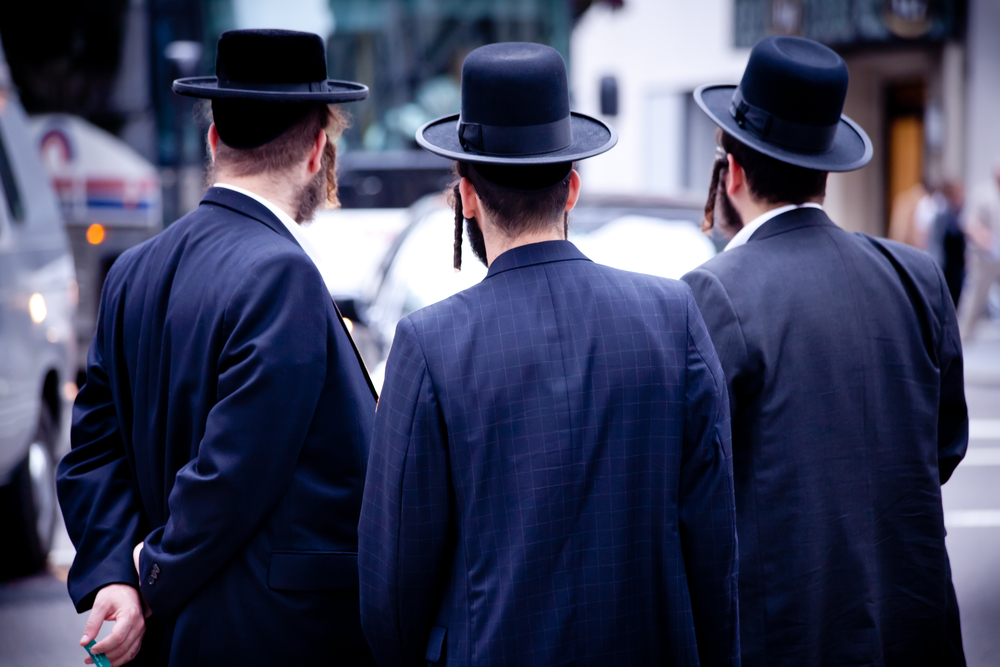Alcohol has most recently ingrained itself into social gatherings and festive occasions. According to certain religions, alcohol is forbidden from their tradition since of its intoxicating reaction to one’s system. When we consider Jews, they always hold rich antiquity and distinctive customs.
So people wonder and often raise a query, “Do or Can Jews drink alcohol? Let us discover the connection between Jews and whether alcohol is acceptable in their religious beliefs in this blog.
Table of Contents
ToggleCan Jews drink alcohol?
Usually, Jews are permitted to drink alcohol, particularly wine, on special occasions like Shabbat, Pidyon Haben, and Jewish holidays. Even though alcohol is considered addictive and destructive, Jewish have the tradition of taking alcohol on special events.
The reason alcohol usage is allowed in many traditions is that alcohol can be helpful in social settings since it reduces people’s uneasiness despite its negative consequences and addiction risk.
However, it reiterates the personal limits and moderation, crucial while ingesting addictive toxications like alcohol to avoid falling off and going back to drinking alcohol. Alcohol is thought of as a drug, just in case you weren’t aware.
The Jewish tradition allows any alcohol, although everyone is expected to adhere to personal moderation and boundaries. Certain religions, like Islam, forbid alcohol entirely.
Apart from the consumption of alcohol, wine plays a significant role in the part of Jewish customs and values. Kiddush, a Jewish benediction and prayer in this ritual custom, wine is consumed before and after special blessings.
Wine is only kosher, the foods that are acceptable to Jews under the kashruth, the part of Jewish law that governs food and drink intake. Kosher wineries are required to manufacture wine in compliance with specific guidelines.
In addition to wine, Jews can take other alcoholic beverages during diverse events. Since alcohol is typically considered a cause of pain and pleasure, they can only proceed cautiously.
The purpose that Jews reiterate of moderation is that they can find themselves easily at the bottom of the bottle if they don’t have self-control. It is also not required that all Jews occasionally drink alcohol.
Some Jews believe red wine should be consumed with greater caution since the flavor’s richness reduces mental performance. Judaism usually supports the idea of being rational and in control, so being intoxicated is strongly discouraged, and alcoholics are treated with contempt by society.
They are individuals who place high importance on behavior and responsiveness. They view inebriated people as a menace from the devil. Because of this, they will never accept someone who is not drinking moderately or at a low level.
They also say that excessive drinking will put down one’s particular individual status and image. Notably, they call the drunkard people “Shikur” and are generally not allowed inside their community and prohibited from participating the social events and religious functions. In a nutshell, the consumption of wine and alcohol in reasonableness is acceptable when self-control is maintained.
What could be the risks of alcohol abuse for Jews?

Jews are always responsible for caring for their health and consider themselves as people whose physical well-being should be their top priority, according to Judaism.
Today’s deep understanding of alcohol’s harmful consequences, including the possibility of intoxication and other hazardous behaviors, which Jews of the past were rarely aware of, supports this further.
They consider alcohol addiction one of the worst behaviors since it isolates families and friends. They treat alcoholism as a severe problem, and their community immediately addresses this issue who are suffering from the effects of their frequent use.
Those seeking treatment need assistance offered by their Jewish family members so they won’t feel judged and ignored by the rest of the community, which can exacerbate their current situation and harm everybody around them.
Liquor can quickly turn into a crutch for people, leading them to develop significant dependence on it and creating them to consume it as escapism to sort out their problems.
Many Jews might discover themselves caught in this immoral cycle of evading obligations and digging themselves deeper and deeper into an eternal pit that is getting harder and harder to escape.
And most importantly, Jews are not permitted to worship or fast while under the spell of alcohol and should completely sober up before engaging in religious practices. Jewish family members must possess an overwhelming feeling of community to extend an offering of assistance to those struggling without judgment.
For a variety of causes, strict Jews might stay away from alcohol, and they are not incorrect to do so. However, forcing your beliefs on another is not the appropriate course of action.
It is finally their choice and responsibility to bear, yet many religious and practicing Jews tend to drink a few additional cups of wine.
Conclusion
Each Jew’s opinion and choices differ when considering cultural and spiritual beliefs. Individuals must create their thoughts based on a thorough investigation to avoid regurgitating what others think and leading lives influenced by what others have told them.
It is because inquiries like “Do the Jews drink alcohol?” and “Whether Jews permitted to drink wine?” are crucial since they promote discussions that can instruct individuals on the best course of action to choose what is appropriate for their particular circumstances. Regarding Jewish custom, Jews can drink alcohol and keep up their limits.
Apart from these, drinking alcohol is entirely under one’s personal preference and cannot be commented on. Remember to set a safe drinking limit instead of falling under excessive drinking and increasing the risk of health issues.

I am a passionate beer connoisseur with a deep appreciation for the art and science of brewing. With years of experience tasting and evaluating various beers, I love to share my opinions and insights with others and I am always eager to engage in lively discussions about my favorite beverage.
















